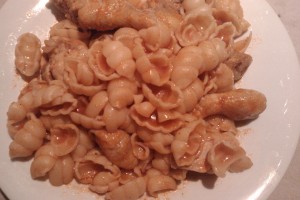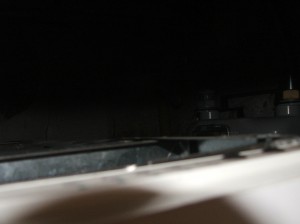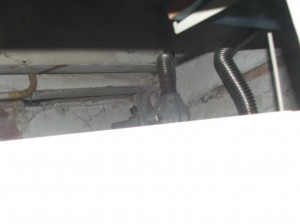I usually cook for my self. It’s something I like to do, as it helps me relax, and above all, I’m really picky with food – and I really love tasteful stuff – but my kind of tasteful.
I’m Portuguese – and I love most of the fantastic foods that are part of our traditional cuisine. But our traditional cuisine is not just stuff that could get to the some of the most complex and difficult things to do – or even work intensive. Our traditional cuisine also includes some very pratical and simple things – like the stewed foods. The portuguese country people – like my self – use mainly chicken.
Chicken is a simple to create animal, and produces a lot of food for its size – most female chicken would lay an egg almost everyday – and we love eggs and things done with eggs – a flock of chickens need only one rooster (the male) – having more than one adult male in a flock is even a bad idea – they will fight all the time. From time to time a chicken will go broody and stay over the eggs left on the nest – you can give a kind of incentive to this by letting some eggs on the nest, or – when this happen, you’ld put 12 to 15 eggs in the nest and let the chicken sit on the next – after three weeks the new small chicks will starting to hatch – from every fertile eggs will hatch a new chick. Three months later they will be ready to eat.
Sometime later the females will start laying eggs and the males will start growing his hen and his comb – it’s time to kill the males that are not expected to grow and replace the old roster.
And all this chicken will end grilled, stewed, boiled or something similar. The old chicken will eventually start laying less eggs, and it’s also time to make some good chicken soup with them – this will have to boil for some time – hours – but it’s worth it – no fresh chick will ever be as tasteful as an old one, specially if it lived in the yard, eating whatever she liked.
But, then again, all this got to my mind because tonight I did for dinner some chicken stewed. A chicken stewed is something that can be done while doing other stuff – like almost everything in the Portuguese cuisine.
You start by preparing the meat – in the country this my mean get to the henhouse, pick a chicken, kill it, take the feathers – a lot of work – but in the city, that mean usually open the box where the meat come from the supermarket and just wash it a bit. If that is your case, you should select legs or wings, not breast – as it would a waste of good mean that will never get as tasteful this way as it would be prepared in other ways.
Now, you just put you meat inside a pan, get some – alot of it – tomato pulp and cover the meat with it, add some minced or ground garlic over the tomato, some pepper if you are into it. After let you get olive oil and put some over the tomato, slowly, until it flows to the bottom of the pan and start covering it. Then you add wine – usually red wine until the meat is almost covered. If you want you can reduce a bit the amount of olive oil or wine and add some water instead, but it would not the exactly the same.
It’s time to start the fire and let it boil for some time. Keep an eye on it, don’t let it get too dry. After sometime boiling, you should stir the meat, and probably add some water. Add water to fully cover the meat. Let it boil some more. Food need time to get taste. So, keep and eye on it, and stir it once or twice in the following several minutes.
After sometime, add a lot more what, enough to add pasta, and let it boil. When the water starts boiling, you add the pasta, and let it boil for 5 to 10 minutes more, and then stir everything and turn the heat off. Let the pan as is for some 5 more minutes.
It’s then time to put the food in your dish and eat. If you did everything correctly you should end with something like the image bellow. Even if today I decided to improvise a bit and use beer instead of wine.

NOTE: Before you start making this kind of food, may be a good idea to see if your health insurance covers it’s ingestion 😉 .







